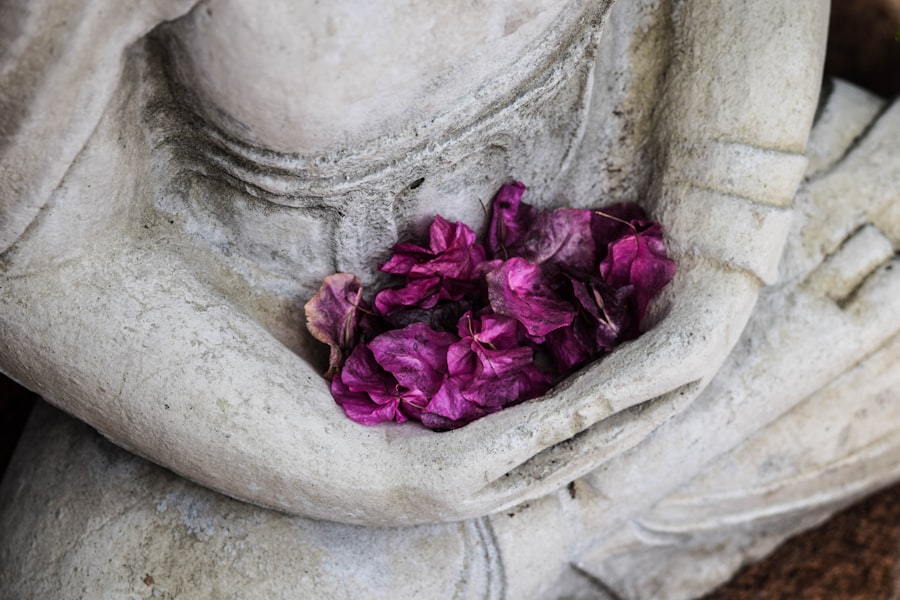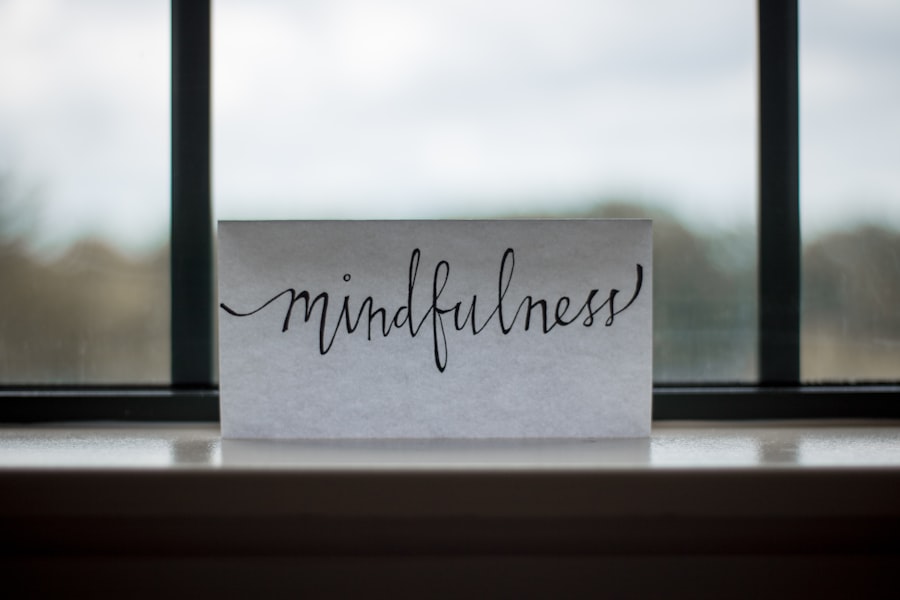Mindfulness and meditation have gained significant traction in recent years, emerging as essential practices for enhancing mental well-being and fostering emotional resilience. Rooted in ancient traditions, particularly within Buddhism, mindfulness refers to the practice of being fully present and engaged in the moment, while meditation encompasses a variety of techniques aimed at cultivating awareness and focus. The modern interpretation of these practices has evolved, making them accessible to a broader audience, transcending cultural and religious boundaries.
As individuals navigate the complexities of contemporary life, the need for effective coping mechanisms has never been more pressing, leading many to explore the transformative potential of mindfulness and meditation. The essence of mindfulness lies in its simplicity; it encourages individuals to observe their thoughts, feelings, and bodily sensations without judgment. This non-reactive awareness can lead to profound insights about oneself and one’s environment.
Meditation, on the other hand, often involves structured techniques such as breath control, visualization, or mantra repetition, designed to quiet the mind and foster a deeper connection with one’s inner self. Together, these practices offer a holistic approach to mental health, promoting clarity, emotional stability, and a greater sense of purpose. As we delve deeper into the benefits and methodologies of mindfulness and meditation, it becomes evident that these practices are not merely trends but rather essential tools for navigating the complexities of modern existence.
Key Takeaways
- Mindfulness and meditation can help reduce stress, improve focus, and promote overall well-being.
- Practicing mindfulness and meditation can lead to better emotional regulation and increased self-awareness.
- When choosing a free online course, consider the instructor’s credentials, course content, and user reviews.
- Different types of mindfulness and meditation practices include mindfulness meditation, loving-kindness meditation, and body scan meditation.
- Start small by incorporating mindfulness and meditation into your daily routine, such as taking a few minutes to focus on your breath or practicing gratitude.
Benefits of Practicing Mindfulness and Meditation
The benefits of practicing mindfulness and meditation are extensive and well-documented across various scientific studies.
One of the most significant advantages is the reduction of stress.
Engaging in mindfulness practices has been shown to lower cortisol levels, the hormone primarily responsible for stress responses in the body.
By fostering a state of relaxation and presence, individuals can mitigate the effects of daily stressors, leading to improved overall health. Furthermore, regular meditation can enhance emotional regulation, allowing practitioners to respond to challenging situations with greater composure and clarity. In addition to stress reduction, mindfulness and meditation have been linked to improved focus and cognitive function.
Research indicates that these practices can enhance attention span and concentration, making it easier for individuals to engage in tasks without succumbing to distractions. This heightened focus is particularly beneficial in today’s fast-paced world, where multitasking often leads to decreased productivity. Moreover, mindfulness has been associated with increased creativity and problem-solving abilities, as it encourages individuals to approach challenges with an open mind and a fresh perspective.
The cumulative effect of these benefits contributes not only to personal well-being but also to enhanced performance in professional and academic settings.
Finding the Right Free Online Course for You

With the proliferation of digital resources, finding a suitable free online course in mindfulness and meditation has become increasingly accessible. Numerous platforms offer a variety of courses tailored to different experience levels, interests, and goals. Websites such as Coursera, Udemy, and Insight Timer provide a plethora of options ranging from introductory classes to more advanced techniques.
When selecting a course, it is essential to consider your personal objectives—whether you seek stress relief, improved focus, or deeper spiritual exploration—as this will guide you toward the most appropriate content. Additionally, reading reviews and testimonials from previous participants can provide valuable insights into the effectiveness of a course. Look for instructors who have credible backgrounds in mindfulness and meditation; their expertise can significantly enhance your learning experience.
Some courses may also offer guided meditations or interactive components that facilitate engagement and practice. As you explore these resources, remember that the journey into mindfulness and meditation is highly personal; what resonates with one individual may not necessarily resonate with another. Therefore, take your time to explore various options until you find a course that aligns with your needs and preferences.
Understanding the Different Types of Mindfulness and Meditation Practices
Mindfulness and meditation encompass a diverse array of practices, each with its unique focus and methodology. Mindfulness itself can be practiced in various forms, including mindful breathing, body scans, and mindful walking. Mindful breathing involves paying close attention to the breath as it flows in and out of the body, anchoring oneself in the present moment.
This practice can be particularly effective for calming racing thoughts or anxiety. Body scans encourage individuals to systematically focus on different parts of their body, promoting relaxation and awareness of physical sensations. Meditation practices also vary widely; some popular forms include loving-kindness meditation (metta), transcendental meditation (TM), and guided visualization.
Loving-kindness meditation focuses on cultivating feelings of compassion towards oneself and others by silently repeating phrases that express goodwill. Transcendental meditation involves the use of a specific mantra repeated silently to settle the mind into a state of profound rest. Guided visualization typically includes listening to an instructor who leads participants through a series of mental images designed to evoke relaxation or inspire creativity.
Understanding these different practices allows individuals to experiment with various techniques until they find those that resonate most deeply with their personal experiences.
Tips for Incorporating Mindfulness and Meditation into Your Daily Routine
Integrating mindfulness and meditation into daily life can be both rewarding and challenging. One effective strategy is to establish a consistent practice schedule. Setting aside a specific time each day—whether in the morning upon waking or in the evening before bed—can help create a routine that fosters commitment.
Even short sessions of five to ten minutes can yield significant benefits over time. As you develop this habit, consider gradually increasing the duration as you become more comfortable with the practice. Another practical tip is to incorporate mindfulness into everyday activities beyond formal meditation sessions.
For instance, practicing mindful eating involves savoring each bite of food while paying attention to flavors, textures, and sensations rather than rushing through meals. Similarly, mindful walking encourages individuals to focus on each step taken, noticing how their feet connect with the ground while observing their surroundings with curiosity. By weaving mindfulness into daily routines, individuals can cultivate a heightened sense of awareness that extends beyond designated practice times.
Overcoming Common Challenges in Mindfulness and Meditation

Despite the numerous benefits associated with mindfulness and meditation, many practitioners encounter challenges along their journey. One common obstacle is difficulty maintaining focus during meditation sessions. It is natural for thoughts to arise; rather than becoming frustrated or discouraged by this phenomenon, practitioners are encouraged to acknowledge these thoughts without judgment and gently return their attention to their breath or chosen focal point.
This process itself is an integral part of developing mindfulness skills.
Another challenge is finding the time or motivation to practice regularly amidst busy schedules. To address this issue, individuals can start small by committing to just a few minutes each day or integrating mindfulness into existing activities like commuting or exercising.
Additionally, setting realistic goals can help maintain motivation; rather than aiming for perfection or lengthy sessions, focusing on consistency can lead to more sustainable progress over time. Recognizing that challenges are part of the learning process can foster resilience and encourage continued exploration of mindfulness and meditation.
Resources for Furthering Your Mindfulness and Meditation Practice
As interest in mindfulness and meditation continues to grow, an abundance of resources is available for those seeking to deepen their practice. Books such as “The Miracle of Mindfulness” by Thich Nhat Hanh offer profound insights into the philosophy behind mindfulness while providing practical exercises for implementation. Similarly, Jon Kabat-Zinn’s “Wherever You Go, There You Are” serves as an accessible introduction to mindfulness principles.
In addition to literature, numerous mobile applications cater specifically to mindfulness and meditation enthusiasts. Apps like Headspace and Calm provide guided meditations tailored to various needs—ranging from sleep improvement to stress reduction—making it easy for users to engage with these practices on-the-go. Online forums and social media groups dedicated to mindfulness can also serve as valuable platforms for sharing experiences, tips, and resources with fellow practitioners.
Connecting with a Community of Like-Minded Individuals
Engaging with a community of like-minded individuals can significantly enhance one’s mindfulness and meditation journey. Many local centers offer classes or workshops where participants can learn together in a supportive environment. These gatherings not only provide opportunities for guided practice but also foster connections among individuals who share similar interests in personal growth.
Online communities have also flourished in recent years; platforms such as Facebook groups or Reddit forums dedicated to mindfulness allow practitioners from around the world to share insights, challenges, and successes. Participating in discussions or attending virtual meetups can create a sense of belonging while providing motivation to maintain regular practice. Ultimately, connecting with others who are on similar paths can enrich one’s experience of mindfulness and meditation, transforming solitary practices into shared journeys toward greater awareness and well-being.
FAQs
What are mindfulness and meditation?
Mindfulness is the practice of being present and fully engaged in the moment, while meditation is a technique to train the mind and achieve a state of consciousness. Both practices are often used together to reduce stress, improve mental well-being, and enhance self-awareness.
What are the benefits of mindfulness and meditation?
Mindfulness and meditation have been shown to reduce stress, improve focus and concentration, enhance self-awareness, promote emotional health, and increase overall well-being. These practices can also help with managing anxiety, depression, and chronic pain.
Where can I find free online courses on mindfulness and meditation?
There are several platforms that offer free online courses on mindfulness and meditation, such as Coursera, Udemy, and Insight Timer. Additionally, many organizations and individuals offer free resources and guided meditations on their websites or through apps.
What topics are covered in free online courses on mindfulness and meditation?
Free online courses on mindfulness and meditation cover a wide range of topics, including the basics of mindfulness and meditation, different meditation techniques, managing stress and anxiety, cultivating self-compassion, and integrating mindfulness into daily life.
Do I need any prior experience to take free online courses on mindfulness and meditation?
No prior experience is required to take free online courses on mindfulness and meditation. These courses are designed for beginners and individuals who are new to mindfulness and meditation practices.






